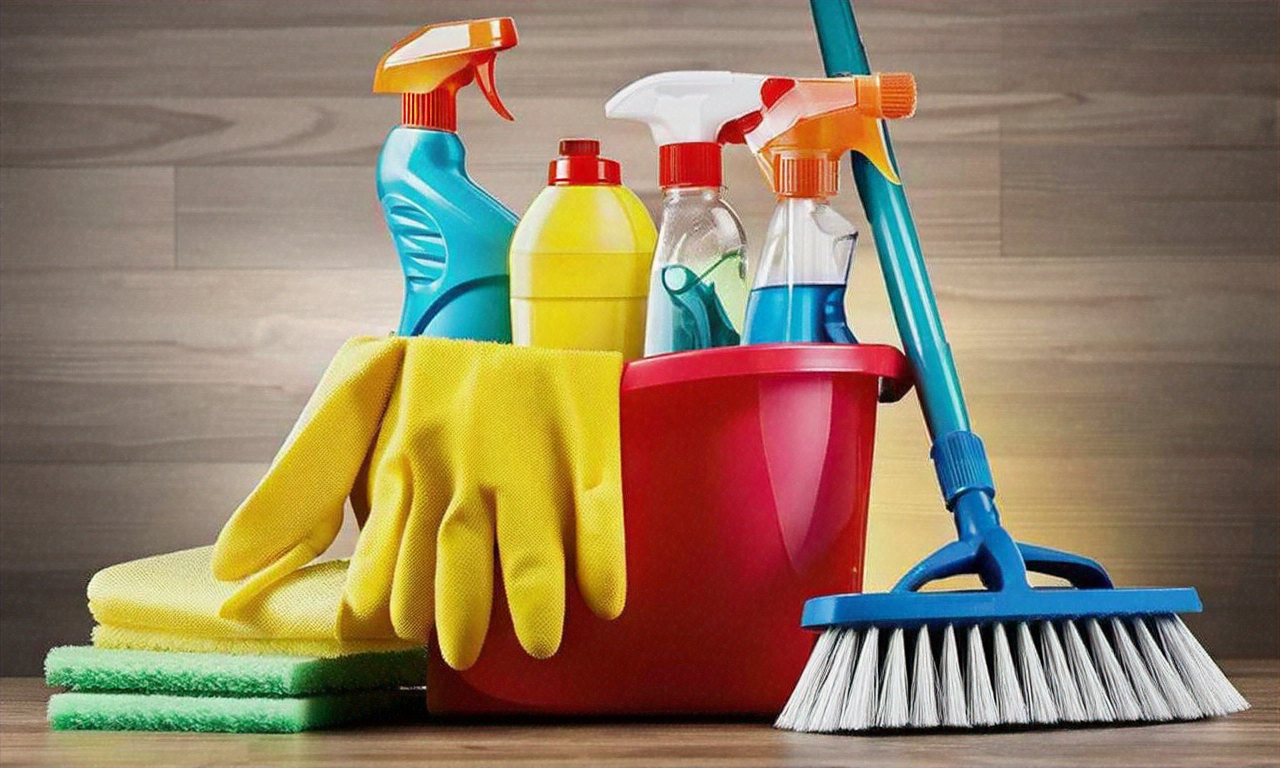What You Need To Know About Household Cleaners
Household cleaners are an important part of daily maintenance, but their composition and purpose can vary. Knowing what ingredients are present, how the products function, and where they are applied, whether at home or in a workplace may support more effective and safer cleaning practices.

What are the main types of household cleaners?
Household cleaners come in various forms, each designed for specific cleaning tasks. All-purpose cleaners are versatile solutions suitable for multiple surfaces, while specialized cleaners target particular areas or materials. Some common types include:
-
All-purpose cleaners
-
Glass and window cleaners
-
Bathroom and tile cleaners
-
Kitchen degreasers
-
Floor cleaners
-
Disinfectants and sanitizers
Understanding the differences between these types helps in selecting the right product for each cleaning task, ensuring optimal results and avoiding potential damage to surfaces.
How do cleaning product ingredients work?
The effectiveness of household cleaners lies in their chemical composition. Most cleaning products contain a combination of active ingredients that work together to break down dirt, kill bacteria, and leave surfaces clean. Some common ingredients include:
-
Surfactants: These reduce surface tension, allowing water to spread and penetrate dirt more easily.
-
Solvents: They dissolve grease and oil-based stains.
-
Acids or alkalis: These help remove mineral deposits and tough stains.
-
Disinfectants: These kill harmful bacteria and other microorganisms.
Understanding these ingredients can help you choose products that are best suited for specific cleaning needs while being aware of potential health and environmental impacts.
What are the essentials for daily cleaning?
Establishing a set of essential cleaning products for daily use can streamline your cleaning routine and ensure you’re prepared for most household messes. Some essentials for daily cleaning include:
-
All-purpose cleaner
-
Microfiber cloths
-
Sponges or scrub brushes
-
Glass cleaner
-
Disinfectant wipes
-
Toilet bowl cleaner
-
Dish soap
Having these items readily available allows for quick clean-ups and helps maintain a consistently clean living space. It’s important to note that while these are general essentials, individual needs may vary based on household composition and specific cleaning requirements.
How can you manage cleaning supplies efficiently?
Efficient management of cleaning supplies not only saves time and money but also ensures that you always have the right products on hand when needed. Here are some tips for managing your cleaning supplies:
-
Organize products by room or cleaning task
-
Store cleaners in a cool, dry place away from direct sunlight
-
Use clear storage containers to easily identify products
-
Label containers with expiration dates
-
Keep a inventory list to avoid overbuying or running out of essentials
-
Consider using a caddy for portability when cleaning multiple rooms
By implementing these strategies, you can create a more organized and efficient cleaning routine, reducing waste and saving time in the process.
What safety precautions should you take when using household cleaners?
While household cleaners are designed to create a healthier living environment, they can pose risks if not used properly. In the United States, the Consumer Product Safety Commission reports thousands of injuries related to household cleaning products each year. To ensure safe use:
-
Always read and follow label instructions carefully
-
Wear protective gloves and eyewear when handling strong chemicals
-
Never mix different cleaning products, as this can create toxic fumes
-
Ensure proper ventilation when using strong-smelling cleaners
-
Store cleaning products out of reach of children and pets
-
Dispose of empty containers and unused products according to local regulations
By adhering to these safety guidelines, you can minimize the risks associated with household cleaners while maintaining a clean and healthy home.
How do you choose products for daily hygiene and cleaning?
Selecting the right cleaning products for your home involves considering various factors to ensure effectiveness, safety, and environmental responsibility. When choosing products for daily hygiene and cleaning:
-
Assess your specific cleaning needs based on surface types and common messes
-
Consider any allergies or sensitivities in your household
-
Look for eco-friendly and biodegradable options if environmental impact is a concern
-
Read product labels to understand ingredients and potential hazards
-
Consider multi-purpose products to reduce the number of cleaners needed
-
Research product effectiveness through consumer reviews and ratings
-
Balance cost with quality and performance
| Product Type | Recommended Brand | Key Features | Estimated Cost |
|---|---|---|---|
| All-Purpose Cleaner | Mrs. Meyer’s Clean Day | Plant-derived ingredients, biodegradable | $3.99 - $5.99 |
| Glass Cleaner | Windex Original | Ammonia-free, streak-free shine | $2.99 - $4.99 |
| Disinfectant Spray | Lysol Disinfectant Spray | Kills 99.9% of viruses and bacteria | $5.99 - $7.99 |
| Bathroom Cleaner | Scrubbing Bubbles | Foaming action, works on multiple surfaces | $3.49 - $5.49 |
| Floor Cleaner | Pine-Sol Original | Multi-surface cleaner, fresh scent | $2.99 - $4.99 |
Prices, rates, or cost estimates mentioned in this article are based on the latest available information but may change over time. Independent research is advised before making financial decisions.
By considering these factors and comparing different options, you can make informed decisions about which cleaning products best suit your household’s needs while aligning with your values and budget.
In conclusion, understanding household cleaners is essential for maintaining a clean, safe, and healthy living environment. By familiarizing yourself with different types of cleaners, their ingredients, and proper usage, you can optimize your cleaning routine while minimizing potential risks. Remember to always prioritize safety, efficiency, and environmental considerations when selecting and using household cleaning products.




